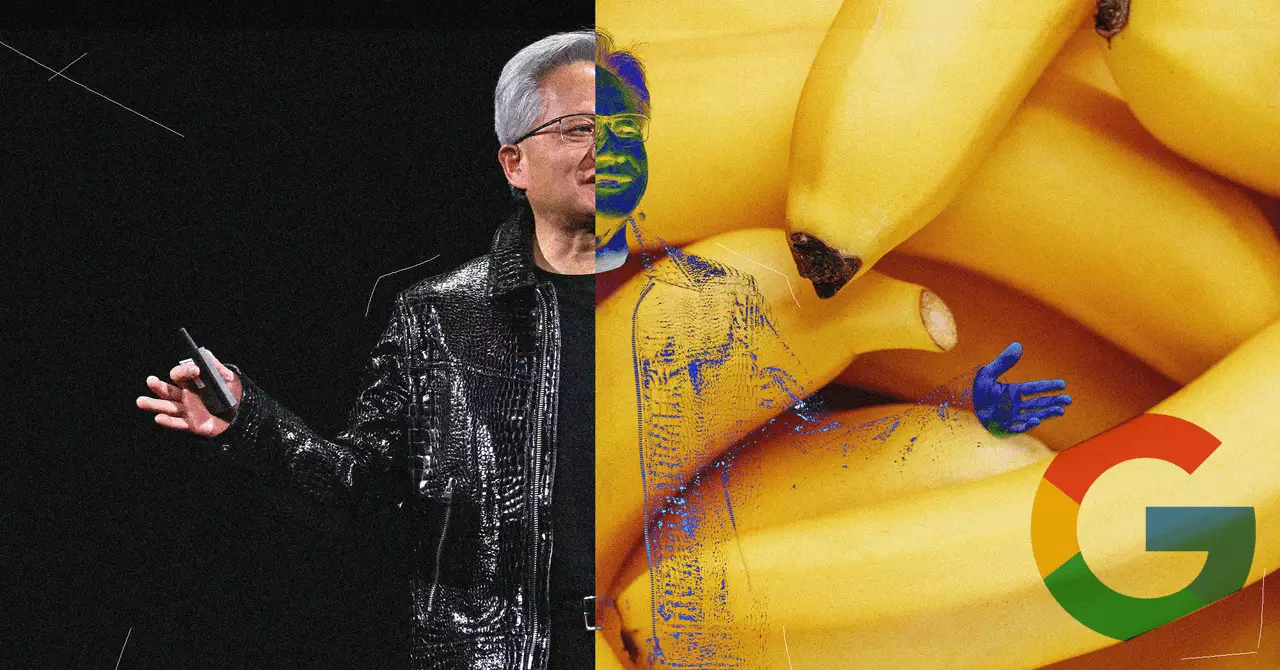Jensen Huang, the charismatic CEO of Nvidia, recently took center stage in London to promote the limitless potential of artificial intelligence. His exuberance is unmistakable—he openly raves about innovations like Gemini’s Nano Banana, a groundbreaking AI image generator that has sparked millions of new images worldwide. Huang’s passion is contagious; he believes AI is not just a tool but a catalyst capable of revolutionizing every aspect of human life. His public declarations mirror a broader shift within the tech industry: positioning AI as an essential driver of societal progress, rather than merely a business opportunity. Huang’s enthusiasm, however, should be scrutinized: while it energizes the industry, it also risks glossing over the challenges and ethical quandaries inherent in AI development.
Ambition Rooted in National Pride and Global Leadership
Huang’s comments about the UK underscore a strategic effort to elevate Britain’s standing as an AI and technology hub. He emphasizes the nation’s historical contributions—like the industrial revolution—and its pioneering academic environment as fertile ground for AI advancements. His assertion that the UK is “too humble” about its technological potential is less about pure patriotism and more about shaping an international narrative: that the UK is an essential player in the AI ecosystem. With investments from Nvidia, OpenAI, and Microsoft pouring into UK data centers and research projects, it’s evident he sees the nation as a critical partner in the global AI race. Yet, this perspective doesn’t fully address the complexities: geopolitical tensions, regulatory hurdles, and societal readiness for advanced AI applications remain significant obstacles that could temper these ambitions.
AI as a Personal and Societal Game-Changer
Huang’s own experience with AI highlights how deeply these technologies influence leadership and daily life. His frequent use of AI tools—ranging from Gemini to ChatGPT—illustrates a belief that AI enhances productivity, creativity, and decision-making. His description of AI as a “thinking partner” echoes a broader philosophical shift: humans and AI are merging into a symbiotic relationship that amplifies human capabilities. Yet, while Huang paints a rosy picture of AI as a benevolent collaborator, this overlooks potential pitfalls. Data privacy, information biases, and job displacement are substantial concerns that warrant more than just optimistic rhetoric. The narrative of AI as a universal enhancer can obscure the nuanced debates around responsible deployment, safety, and societal adaptation.
Market Dominance and the Democratization of AI
By investing heavily in infrastructure projects like Nscale, Huang positions Nvidia at the heart of a new technological revolution. His bold claim that AI could help “close the technology divide” is compelling, but it invites skepticism. While democratization of AI has noble intentions, in reality, access remains uneven. Large corporations and wealthy nations are poised to benefit disproportionately, leaving underprivileged communities potentially further behind. Huang’s vision of AI being accessible to all is admirable, yet it assumes that infrastructure and expertise will follow suit—a hope that often neglects the socio-economic disparities that underpin technological access. It’s easy to romanticize AI as a leveler, but the truth is more layered: without deliberate effort, AI may exacerbate existing inequalities.
A Personalization Revolution and Ethical Challenges
Huang’s narrative about how he leverages various AI tools for different tasks underscores a future where AI personal assistants become intricately woven into human lives. He values AI’s ability to understand his individual needs, adapt to different contexts, and even critique his work—a clear indicator that AI will serve as an extension of human cognition. Nonetheless, this raises profound ethical questions about dependence, authenticity, and autonomy. If AI continuously refines our thinking, who truly governs the ideas we generate? Are we risking a flood of superficially curated information that hampers genuine critical thinking? Huang’s optimism about AI’s capacity to reshape work and creativity assumes an unproblematic integration, but unresolved issues about agency and accountability linger beneath the surface.
The Double-Edged Sword of Technological Pioneering
Huang’s vision of AI as a democratizing force is captivating, giving room for hope amidst the often dystopian narrative surrounding emerging technologies. Yet, history offers cautionary tales: innovations like the internet promised universal access but resulted in new divides and challenges. Likewise, AI’s rapid advancement risks outpacing societal readiness and regulatory frameworks. As industry leaders like Huang push forward with investments and innovations, they must confront the delicate balance of leading progress while safeguarding societal values. The fervor surrounding Nano Banana and similar innovations may inspire, but it can also distract from the essential effort needed to ensure safe, equitable, and ethical AI development—an effort that demands humility and critical oversight, not just optimism and celebration.

